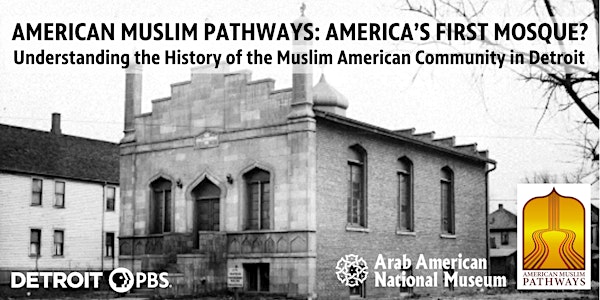Presented by Detroit PBS in partnership with the Arab American National Museum.
In 1921, Detroit’s Muslim American community built the first mosque in the nation intended for congregational prayer. It was located in Highland Park, near the Ford Motor Company’s first moving assembly line where many Muslim immigrants worked.
Muslims began to arrive in the area in the early 1900s from Eastern Europe, the Ottoman Empire and British India. By the 1950s, Albanians, Arabs, Turks, African Americans and South Asians all had mosques or religious associations in the area, and Detroit was the headquarters of the first significant national Muslim American association. Confident that Islam fits in well in the American heartland, these institutions have attracted, and continue to attract, thousands of new Muslim families and communities to Metro Detroit in the 21st century.
This rich and complex history is the subject of a lecture to be presented by Sally Howell, Ph.D., professor of history and Arab American studies at the University of Michigan-Dearborn.
Detroit PBS and the Arab American National Museum will be presenting this special event at the museum on May 2, beginning at 6 p.m. It’s free and open to the public.
Registration is requested.
Following Howell’s presentation, she will be joined by other local Muslim American and Arab American leaders for a panel discussion:
- Diana Abouali, Ph.D., director of the Arab American National Museum
- Mark Crain, executive director of Dream of Detroit
- Rebeka Islam, executive director of APIA Vote-Michigan
There will also be an audience Q&A.
This event is part of a national series of lectures in 10 cities entitled American Muslim Pathways, organized by the Unity Productions Foundation.
Program begins at 6 p.m. Doors open at 5 p.m., with many museum exhibits available for viewing.
Photo courtesy of the Detroit Free Press.
